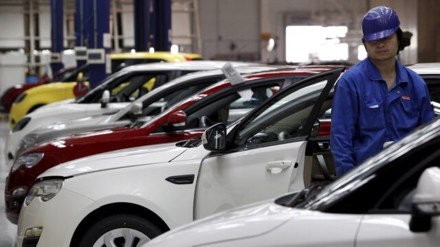Domestic automobile retail sales fell 4% year-on-year (y-o-y) in July, dragged down by weaker demand for passenger vehicles and two-wheelers, according to data released by the Federation of Automobile Dealers Associations (FADA) on Thursday.
Total vehicle registrations stood at 1.96 million units last month, compared to 2.05 million in July 2024, a decline attributed to a high base last year.“After three consecutive months of growth, India’s auto retail sector applied the brakes in July, with overall retails declining by 4.31% y-o-y,” said C S Vigneshwar, president, FADA. Looking ahead, FADA said monsoon-driven rural demand and the festive season could boost sales but warned of challenges from export tariff uncertainties and localised flood risks.
The US government’s hike in tariffs on Indian exports—from 25% to 50%—has led to a 0.4% drop in equity markets and rupee depreciation, adding financial volatility. This has increased import costs for exporters, weakened consumer confidence, and may raise household savings, putting near-term pressure on discretionary spending, including vehicle purchases, FADA noted.Passenger vehicle (PV) sales declined marginally y-o-y to 328,613 units in July, compared to 331,280 units in the same month last year.
FADA noted that while auspicious delivery dates, targeted schemes and rural marketing efforts supported volumes in the hinterland, urban demand remained subdued due to cautious consumer sentiment.With inventory levels stable at around 55 days, Vigneshwar said that calibrated discounting, enhanced financing options, and intensified urban outreach will be crucial to sustaining momentum during the upcoming festive season.
The Road Ahead: Hopes for a Festive Season Rebound
Two-wheeler registrations declined 6% y-o-y to 1.36 million units in July, as crop-sowing activities and prolonged heavy rains sharply affected rural footfalls compared to urban demand. However, dealers remain optimistic about a post-monsoon recovery, with many purchase decisions postponed to August ahead of the festive season. This makes strategic stock management and focused rural-urban engagement essential to revive sales momentum, FADA noted.
Tariffs and Economic Uncertainty
Commercial vehicle retail sales saw a minor increase to 76,439 units last month, up from 76,261 units in the same period last year. The growth was driven primarily by urban demand, supported by new model launches, aggressive marketing, bulk institutional orders, timely stock availability, and targeted schemes that boosted school-bus sales, FADA added.In contrast, rural haulage demand remained fragmented due to heavy rainfall, seasonal softness in cement, coal and construction logistics, as well as slower financier disbursements, leading many buyers to postpone purchases until the post-monsoon period, FADA added.
Tractor registrations recorded a strong year-on-year growth of 11% to 88,722 units in July. FADA attributed the rise to the timely release of enhanced agricultural subsidies, favourable monsoon rains and improved rural liquidity, which together boosted purchase intent. Regarding the outlook, FADA added that the monsoon forecast through September appears broadly supportive for agrarian demand.
